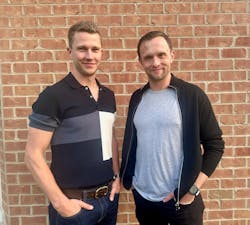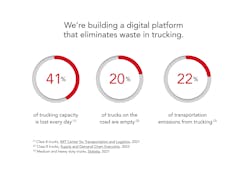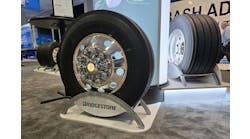Ryder opens Silicon Valley tech lab to maximize customer utilization
As the digital transformation of the transportation industry matures, the once-thick line separating trucking and Big Tech has been shaved down to a razor’s edge. What started nearly six years ago with the Federal Motor Carrier Safety Administration mandating electronic logging devices has morphed into full-scale tech assimilation, where even the smallest trucking operators can use any number of apps to leverage telematics data into better mpg and uptime.
Now, one of the nation’s largest truck and maintenance providers, Ryder, has set up a technology lab called Baton in San Francisco to develop software tools to optimize drivers to loads. The main goal of Baton, A Ryder Technology Lab is to help customers eliminate waste in the supply chain and improve utilization, as well as brace Ryder for the impending AI revolution.
“The establishment of a Silicon Valley-based technology lab is a natural evolution for Ryder, as we build on the $1.3 billion in strategic investments we’ve made over the past five years to develop, acquire, and invest in innovative technologies, products, and services that help make our customers’ logistics networks more efficient and resilient,” says Karen Jones, CMO and head of new product development for Ryder.
Baton was founded in 2019 by Andrew Berberick and Nate Robert. Ryder acquired the startup in August 2022 and the two are now co-chief product and technology officers for Ryder.The lab already has hired 30 employees, with 20 more expected by end of year. They hail from the biggest names in Silicon Valley, from Amazon and X (formerly Twitter) to Google and Tesla. Other members were previously employed by Apple, OpenAI, NASA, Loadsmart, and Kinema Systems.
Ryan Houlihan, who worked on the Mars Rover as a NASA engineer, leads Baton’s engineering team, while Erik Malin, a former VP of operations at Loadsmart, is the lab’s head of operations Erik Malin.
Robert explained to Fleet Maintenance that he and Berberick knew they wanted to create a technology company and spent several months after receiving master’s degrees from Stanford University researching industries on the verge of disruption. They ultimately chose transportation due to the growth of digital brokerage and telematics at the time, and the ability of software to make a major impact and help people.
After speaking with more than 100 executives in the industry and many drivers at truck stops, Baton’s founders realized the biggest pain point was reducing waste by efficiently matching drivers to loads.
For example, a logistics company might be faced with fulfilling 1,000 loads with 500 trucks.
“That's a really hard puzzle for the operator to manually do quickly,” the 32-year-old Robert said. Baton’s optimization software platform provides help in this area by performing a “first pass” at scheduling these loads to trucks, taking into account multiple factors such as dwell time at various receivers, he said. It might be two hours at one location and four hours at another, and the algorithms figure out the most efficient course of action. The human acts as an editor for the AI, making adjustments as needed.
“As things change during the day, the optimization and the human are working together to figure out the most efficient way to do all these tasks,” Roberts said. This allows room for reassignments based on driver preferences.
Robert said the long-term vision for the platform is to incorporate maintenance status, hours of service, and traffic. That type of scale is more viable now as part of Ryder, Robert said. Previously, Baton may have managed 180 trucks at a time. Now as part of Ryder, they have the ability to roll out the software to many thousands of trucks and millions of freight movements.
And as Ryder continues to hire more Big Tech brains, work in more trucking variables, and train the AI, the goal will still remain relatively simple: preventing wasted time, fuel, and labor.
“There is a massive amount of waste when supply chains do not communicate," Robert said. "We believe we can change that and bring deep transformation to an entire sector.”






